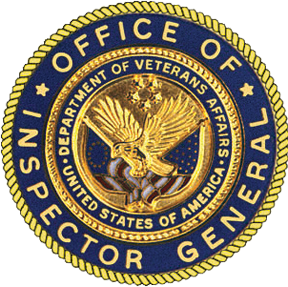Veteran Self-Scheduling Process Needs Better Support, Stronger Controls, and Oversight
Report Information
Summary
Veterans are eligible to receive community care under certain circumstances, such as when their local VA medical facility does not provide the requested service or when a provider determines community care is in their best medical interest. In October 2020, the Veterans Health Administration’s (VHA) Office of Integrated Veteran Care (IVC) began implementing the Veteran Self-Scheduling (VSS) process at VA medical facilities. The process allows eligible veterans to schedule their appointments directly with community providers after these providers receive an approved request for services and an authorization for a veteran to receive care from them. Although many facilities implemented the process in 2020, staff were not required to offer the option until September 2023. The VA Office of Inspector General (OIG) conducted a review to determine whether IVC had adequate controls in place and whether IVC provided effective oversight of the process.
The OIG found IVC needs to improve its oversight of the VSS process to strengthen support and mitigate the risk of misuse of the scheduling option. IVC did not adequately help facilities use and monitor VSS before requiring them to use it. Additionally, neither IVC nor facility leaders implemented controls to identify potential misuse of VSS, such as opting veterans into the system without their permission or knowledge. If oversight is not improved, inappropriate use of the VSS option may go undetected, and veterans may experience delays in care.
The acting under secretary for health concurred with OIG’s eight recommendations for the under secretary to make sure IVC, in coordination with VHA’s chief operating officer and the Veterans Integrated Service Networks, take appropriate steps to better assist medical facilities with implementing VSS, improve controls over VSS so that the scheduling process is used appropriately, and improve oversight to make sure the process works as intended.
Evaluate its Veteran Self-Scheduling training and identify improvements if they are needed.
Make certain that staff who are involved in the Veteran Self-Scheduling process are trained on how to assess eligibility for the scheduling option, communicate key information to veterans on the option, and conduct appropriate consult follow-up procedures.
Ensure all guidance related to the Veteran Self-Scheduling process is clear, consistent, and disseminated to all VA medical facilities.
Establish a mechanism to effectively track and monitor each VA medical facility’s challenges with implementation of the Veteran Self-Scheduling process and then develop a plan to address reported issues.
Develop best practices and lessons learned for implementing the Veteran Self‑Scheduling process and disseminate them to all VA medical facilities.
Develop controls to ensure VA medical facility staff have the tools in place to identify instances of potential inappropriate processing or inappropriate use of Veteran Self-Scheduling consults.
Direct facilities to conduct routine reviews of Veteran Self-Scheduling consults to identify potential inappropriate processing or use of the Veteran Self-Scheduling option and notify VHA’s Office of Integrated Veteran Care of instances of inappropriate use.
Develop a plan to accurately assess whether the Veteran Self‑Scheduling process is meeting its intended goals.
